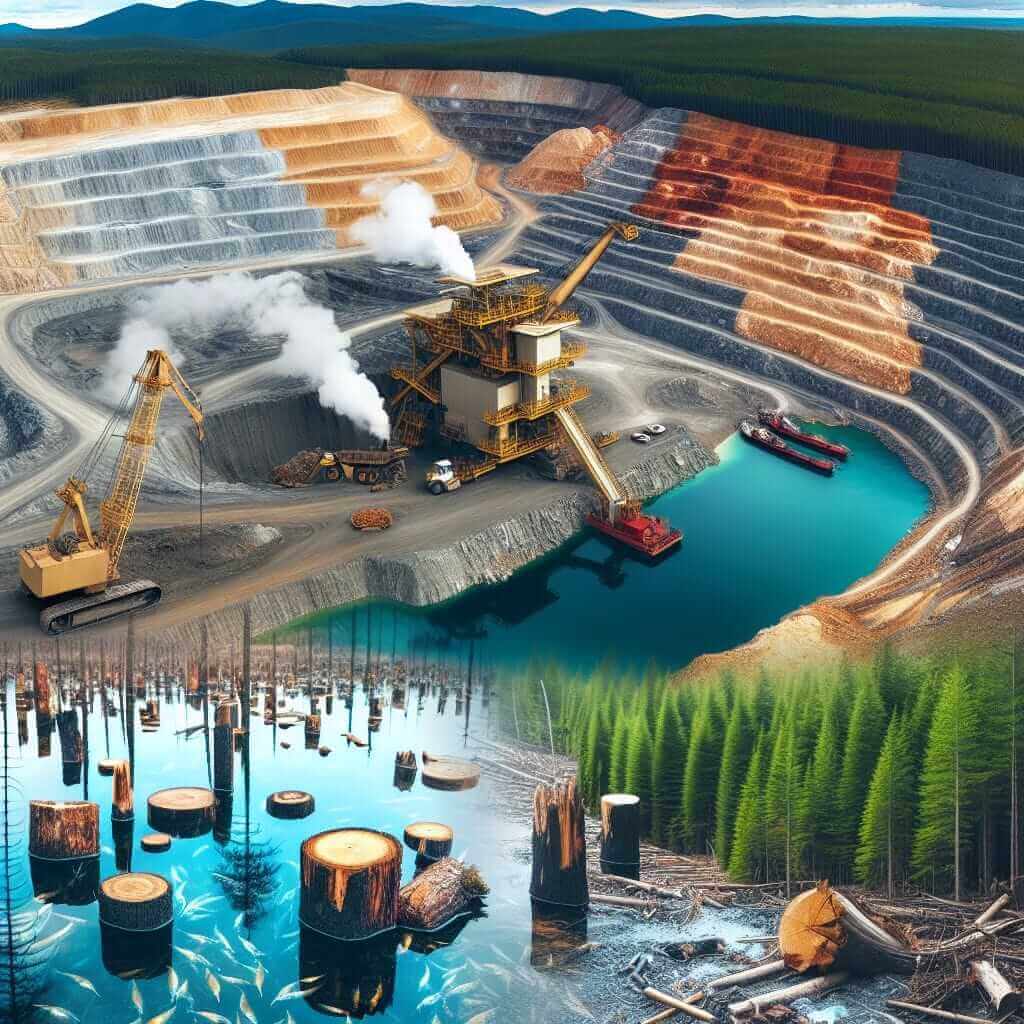The IELTS Reading test is a critical part of the exam, and it often includes passages on current and globally relevant topics. One of the contemporary issues that may appear in the Reading section is the environmental impact of mining for renewable energy materials. Understanding such topics not only prepares you for the exam but also enhances your general awareness. Historically, topics related to environmental science and sustainable development have frequently appeared in the IELTS Reading section, and given the increasing focus on renewable energy, this trend is likely to continue.
Practice Reading Passage – Medium Text
What are the environmental impacts of mining for renewable energy materials?
Mining for renewable energy materials, such as cobalt, lithium, and rare earth elements, is essential for the production of batteries and other components that power renewable energy technologies. However, the extraction of these materials comes at a significant environmental cost.
Cobalt, for instance, is primarily mined in the Democratic Republic of Congo (DRC), where mining activities have led to severe environmental degradation. The cobalt mining process releases harmful substances, including sulfur dioxide and nitrogen oxides, into the atmosphere. These pollutants contribute to acid rain, which can damage ecosystems and human health.

Lithium, another crucial material for renewable batteries, is mainly extracted in Australia, Chile, and China. The extraction process requires substantial amounts of water, leading to water shortages in regions already facing scarcity. The evaporation ponds used in lithium mining also disturb local aquatic ecosystems and contribute to soil degradation.
Rare earth elements, used in wind turbines and electric vehicles, have their own set of environmental issues. The mining and refining processes generate toxic waste, which can contaminate water sources if not properly managed. Additionally, the extraction of rare earth elements often necessitates the use of hazardous chemicals that pose risks to both environmental and human health.
Despite these environmental drawbacks, the demand for renewable energy materials is expected to continue rising due to the global shift towards clean energy. Therefore, it is crucial to develop more sustainable mining practices and improve recycling technologies to mitigate the environmental impacts associated with the extraction of these valuable resources.
Questions
Multiple Choice
-
What is a significant environmental concern associated with cobalt mining in the DRC?
a) Water shortages
b) Air pollution
c) Toxic waste
d) Soil degradation -
Which chemical pollutants are released during cobalt mining?
a) Carbon dioxide and methane
b) Sulfur dioxide and nitrogen oxides
c) Ammonia and lead
d) Chromium and mercury -
The extraction of lithium primarily affects which natural resource?
a) Air
b) Soil
c) Water
d) Forests
Identifying Information (True/False/Not Given)
- The DRC is the leading producer of lithium in the world.
- Mining activities for renewable energy materials often disturb local ecosystems.
- The use of rare earth elements in renewable energy technologies is declining.
Summary Completion
Complete the summary below using words from the box.
Cobalt mining in the ……… releases harmful chemicals into the air, contributing to ………, which can damage ecosystems. Lithium mining, primarily conducted in Australia, Chile, and China, causes significant ……… shortages. Rare earth elements’ extraction involves the production of ……… waste, posing a threat to water sources.
Words: water, acid rain, toxic, DRC
Answer Key
Multiple Choice
- b) Air pollution
- b) Sulfur dioxide and nitrogen oxides
- c) Water
Identifying Information (True/False/Not Given)
- False
- True
- Not Given
Summary Completion
Cobalt mining in the DRC releases harmful chemicals into the air, contributing to acid rain, which can damage ecosystems. Lithium mining, primarily conducted in Australia, Chile, and China, causes significant water shortages. Rare earth elements’ extraction involves the production of toxic waste, posing a threat to water sources.
Common Mistakes
When tackling this type of reading passage, students often:
- Misinterpret the specific environmental impacts mentioned.
- Confuse the locations of mining activities for different minerals.
- Overlook key details in summary completion exercises.
Vocabulary
Here are some key terms from the passage:
- Degradation (noun) /ˌdeɡ.rəˈdeɪ.ʃən/: The condition or process of degrading or being degraded.
- Scarcity (noun) /ˈsker.sə.ti/: A situation in which something is not easy to find or get.
- Pollutant (noun) /pəˈluː.tənt/: A substance that pollutes something, especially water or the atmosphere.
Grammar Focus
Pay attention to the use of passive voice in the passage. For example, “Cobalt is primarily mined in the DRC” employs passive voice to emphasize the material over the actors involved in the action.
Tips for High IELTS Reading Scores
- Skim and Scan: Practice skimming passages to get the main idea and scanning for specific information.
- Time Management: Allocate your time equally among different sections.
- Practice Varied Topics: Get familiar with a wide range of subjects to improve your adaptability.
With these tips and regular practice, you can significantly enhance your performance in the Reading section of the IELTS exam.